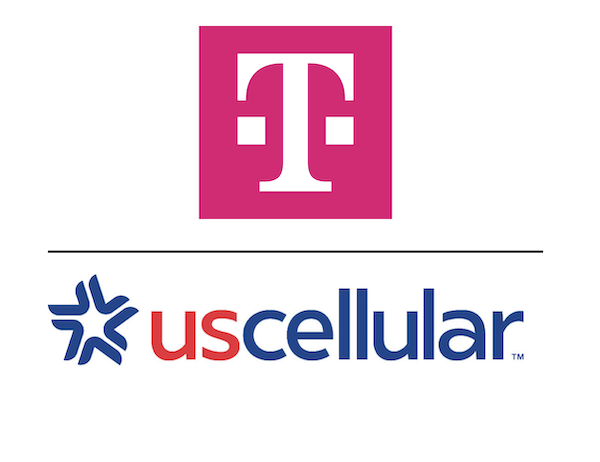How might the DoJ and FCC treat T-Mobile’s (NASDAQ: TMUS) intended acquisition of UScellular’s (NYSE: USM) wireless operations and a portion of its spectrum assets? Analysts ponder that question.
Charles Garrett, Principal Analyst, Global Telecom Consumer Services at data and analytics firm GlobalData, said assuming the transaction receives regulatory approval, T-Mobile will also secure UScellular’s base of more than four million wireless subscribers, alongside spectrum assets that “align nicely” with T-Mobile’s plans moving forward.
Garrett explained: “While the sub-6 GHz frequencies can enhance coverage and capacity for mobile customers – particularly in the 40 percent of UScellular’s existing footprint covering rural areas – the mmWave spectrum in the 24 GHz range could prove strategic down the road in adding capacity for high-speed home internet offerings via 5G fixed wireless access.”
Garrett believes the regulatory and political climate will be “extremely relevant” for the timing and conditions surrounding this deal, which aims to close by mid-2025. “Just how regulatory authorities could perceive the agreement will vary significantly depending on which administration is in place by 2025, potentially impacting the timeframe for completing the operation. T-Mobile’s Mint Mobile acquisition completed in May 2024 – months after the original projection of a 2023 closing – and that transaction lacked the spectrum considerations present in the UScellular deal.”
New Street Research (NSR), too, has heard concerns about the leadership at the DoJ and the FCC. “While these concerns are understandable, we don’t think they will lead to any transaction being rejected,” writes NSR Policy Advisor Blair Levin in a research note this week.
Jesús Romo, Americas Research Director, Telecoms Market Date & Intelligence at GlobalData, adds that UScellular plans to keep 70 percent of its spectrum portfolio. He calls those “a trove of assets that is most likely to be negotiated in the spectrum secondary market. UScellular aims to keep strategic mid-band frequencies, including licenses from the 3.45 GHz and C-band, as well as mmWave capacity that could receive interest from FWA operators, a market now projected to exceed 20 million accesses by 2028,” according to GlobalData’s estimates.
Jonathan Chaplin, who leads U.S. Communications Services research team at NSR, said in a research note the firm hasn’t seen details of the spectrum licenses being sold. A preliminary estimate of the spectrum portfolio is $2.5 billion. “This will move up or down depending on the specific 700 MHz, PCS and AWS licenses being sold,” analysts believe.
NSR’s Blair Levin says the firm believes the deal is likely to gain government approval with a request for more information. But he adds: “Given the current antitrust leadership, the odds don’t reach the high level of certainty that they would have in a prior time.”
Regulators will conduct antitrust analysis, looking to see if the deal is likely to reduce competition in a geographic or product market. Since the last review, DISH (NASDAQ: SATS) has been building out its facilities-based mobile competitor. If authorities include DISH in the product market analysis, “any deal becomes relatively easy to approve,” writes Levin.
As far as a geographic market analysis, NSR believes the transaction is likely to be reviewed in terms of both a national and local market perspective. It surmises the data will show that “UScellular is not large enough to shift the current competitive dynamics, even if the government doesn’t include DISH” in the calculations, according to Levin.
The local market review is likely to be a smidge more problematic. “There may be places where UScellular’s position, either as a matter of market share or as a matter of spectrum, may be more significant,” writes Levin. “Yet even here, we don’t think there will be a problem. Prices are set nationally so the transaction is unlikely to affect prices in a local market.” If there is a problem in a local market, a divestiture of spectrum and/or customers to another provider could probably solve it, NSR believes.
Garrett added that UScellular’s announcement of a strategic review in August 2023 signaled to the market that the country’s largest regional mobile network operator was putting its assets in play. “Considering this represented an opportunity to acquire spectrum, a particularly precious commodity as long as the FCC’s auction authority remains in limbo, interest from the national MNOs was certainly to be expected,” he said.
By Leslie Stimson, Inside Towers Washington Bureau Chief





Reader Interactions